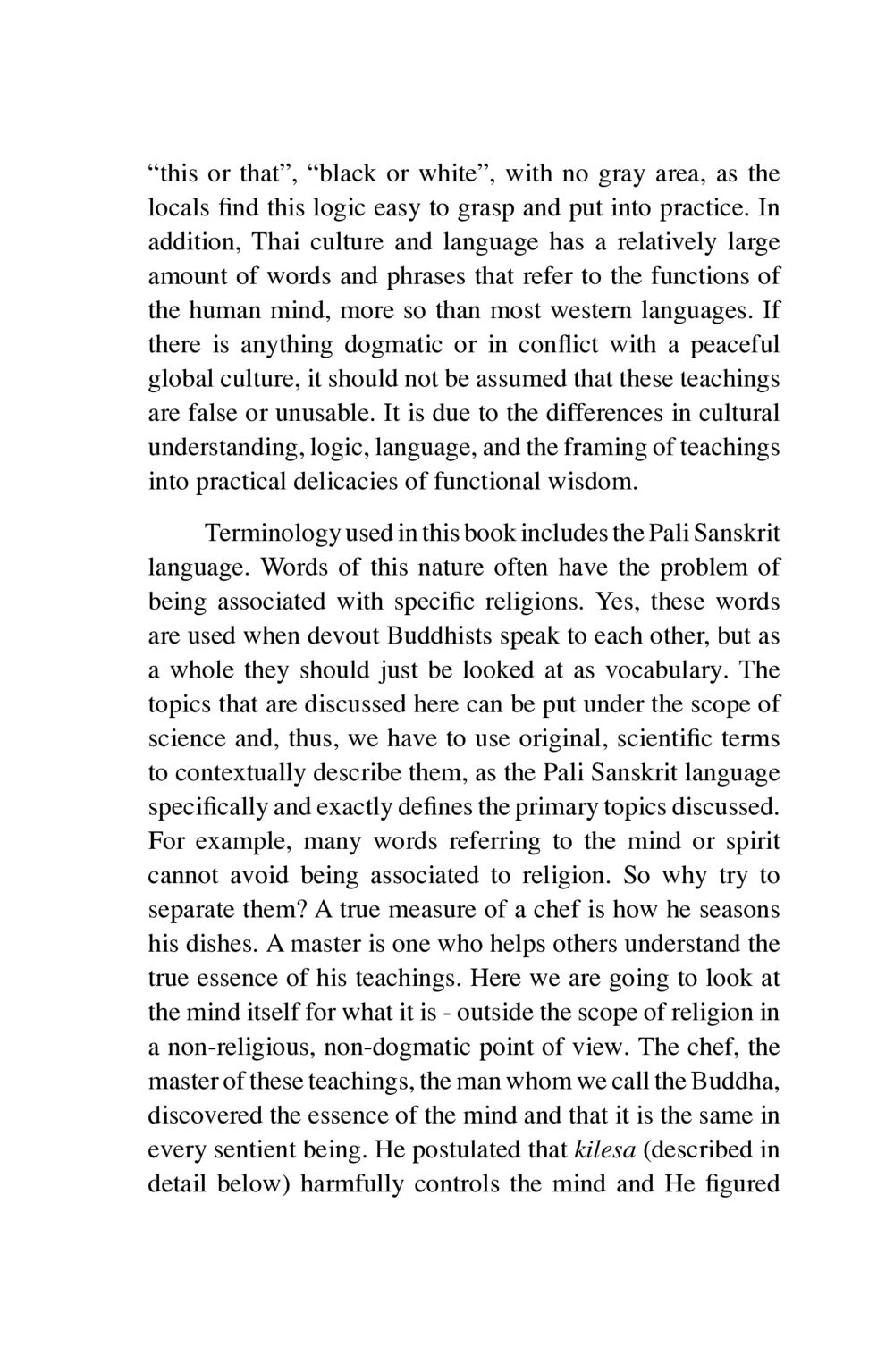Understanding the Mind in Thai Culture : หน้า 7/216
Family Day By Day : หน้า 7/216 Explore the relationship between language, culture, and the concept of the mind in Thai society, highlighting Buddhist teachings.
0 ครั้ง

สรุปเนื้อหา
This text discusses the simplicity of dualistic thinking in Thai culture and the rich linguistic resources that explain human cognition. It emphasizes that terms often linked to Buddhism should be treated as vocabulary, not dogma, and that teachings on the mind can be viewed from a scientific perspective. The essence of mind, as taught by the Buddha, transcends religious connotations, focusing on universal truths about sentience. The significance of 'kilesa' as a harmful influence on the mind is also explored, contextualizing these concepts within the broader framework of functional wisdom.
หัวข้อประเด็น
- Thai cultural understanding
- Dualistic thinking in Thai logic
- Pali Sanskrit and its significance
- Buddhism and its terminology
- The essence of the mind
- Kilesa and its impact on cognition
ข้อความต้นฉบับในหน้า
หน้าหนังสือทั้งหมด
























































































































































































































